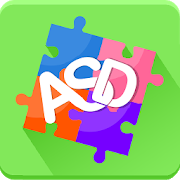
Autism Spectrum Disorder (ASD) is a developmental disorder that can affect people in their early childhood and adolescence. It is a disorder that affects the communicative and behavioral ability of individuals who have it. Difficulty in interacting with others, interests in very limited areas and exhibiting the same behavior repeatedly, and difficulty in working with people at the workplace or in the society are some of the most common characteristics of people with ASD.
When working with teens who have autism, healthcare professionals could face challenges. People with ASD could exhibit behaviors that interfere with their ability to effectively and efficiently navigate their environment. They could also be overreactive, willful, anxious, unfeeling, withdrawing, or obnoxious.
As a result, caregivers could face issues that affect them professionally and personally. It is not unlikely that they could lose control of their ability to cope or regulate their behavior, which could eventually lead to a meltdown. After every episode of meltdown, they could experience a feeling of helplessness, frustration, and powerlessness that could result from any of these: sensory overload, cognitive overload or the inability to self-regulate emotions.
It is to help understand the ways of dealing with adolescents with Autism Spectrum Disorder that MentorHealth, a leading provider of professional training for all the areas of healthcare, is organizing a valuable ninety-minute webinar on May 13.
MentorHealth brings Kathy Kaluza Morris, a highly experienced speech therapist and self-contained teacher of students with behavior disorders, to be the speaker at this session. To gain insights into how to deal with adolescents who have ASD, please enroll for this webinar by visiting http://bit.ly/2Yc1WIk .
—————————————————————————————————————-
At this session, Kathy will bring the rich experience she has in developmental strategies, at which she has worked for 45 years. The participants of this session will benefit from her experience and research based strategies, which Kathy will impart. This will help them understand the communication and social needs of adolescents with ASD and support them, helping to prevent behavioral problems.
She will use visual aids such as videos to demonstrate examples that will help support and demonstrate the strategy. Her teaching is based on Brenda Smith Myle’s escalation model, which will help the participants be able to identify each of the stages with suggestions on how to prevent each from escalating to the next and more serious stages, which include:
- Rumbling
- Meltdown
Apart from these, Kathy will also explain the critical components for setting up a program for students with ASD as recommended by the National Autism Research Council. She will spotlight these with case studies that have demonstrated how to put successful intervention strategies in place.
She will cover the following areas at this webinar:
- Recognizing the Warning Signs
- Responding Appropriately to Each Stage
- Visual Strategies that are age Appropriate but still a Necessary Critical Component when setting up a Program for a Teen with an ASD whether in a General Education Setting or a Self-contained Setting.
This webinar is of immense benefit to those who are related to ASD in some or another capacity, such as teachers (general education and special education), parents of teens, social workers, counselors, administrators, speech therapists, and occupational therapists.
—————————————————————————————————————
About the speaker:
Kathy Kaluza Morris has been a special educator for 45 years, serving as a speech therapist, self-contained teacher of students with behavior disorders, moderate to severe developmental disabilities, and as a resource teacher and first grade teacher. She conducts seminars nationally and internationally.
She served on the President’s Commission on Special Education, was Teacher of the Year and recently, she and her husband were honored by the ARC of Texas with the Lifetime Achievement Award Serving Persons with Disabilities.





